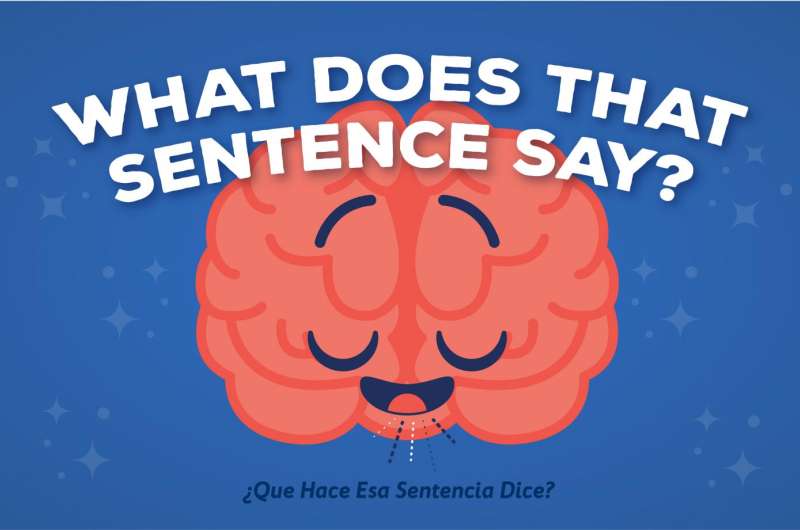New research shows late bilinguals are sensitive to unique aspects of second language

Imagine coming across a sentence in English that reads like this: "Mary apple eats her delicious." For most native-English speakers, the sentence would likely strike you as odd because it doesn't seem to be structured in an order that immediately gets the message across.
It has always been thought that, when adults learn a second language, they face this problem because the grammar of other languages doesn't necessarily match their native language. But, a new study reveals that adults are capable of learning and processing a new language in a way that resembles native speaker language use.
"Learning a second language as an adult is a difficult task," said UCR affiliate psychology professor Elenora Rossi, who was on the research team. "For years, scientists have believed that only the brains of very young children were pliable enough to allow for successful learning of a second language, while that was thought to be impossible for adults."
In the past two decades, the advance of testing methodologies and revolutionary neuroimaging methods have allowed language processing to be studied in real-time in a non-invasive way, opening the doors to a better understanding of how our brains process linguistic information in two languages.
In the study, the team looked at how native English speakers, who learned Spanish as a second language as adults, understood sentences in Spanish that contained subtle aspects of Spanish grammar that do not exist in English. Participants in the study were already advanced in Spanish, but not native speakers. The goal was to test them on aspects of Spanish that are typically difficult to learn because they don't exist in the structure of English grammar. Errors were purposely introduced and participants were asked whether they could detect the errors.
"Counter to the long-standing assumption that learning a second language and becoming bilingual past early childhood is impossible, we found that English speakers who learned Spanish as adults were able to understand these special aspects of Spanish," said Judith Kroll, a UCR psychology professor who was also on the research team. "The results suggest that adults are capable of learning and processing a new language in a way that resembles native speaker language use."
The authors of the paper, published in Frontiers in Psychology, are part of a larger research effort between UCR and Penn State to study the bilingual mind and brain. The research is conducted in collaboration, and supported by a National Science Foundation Partnerships for International Research and Education grant. Future research by the team will target understanding how an intensive but short period of new language learning may shape adult minds.
More information: Eleonora Rossi et al. Late Bilinguals Are Sensitive to Unique Aspects of Second Language Processing: Evidence from Clitic Pronouns Word-Order, Frontiers in Psychology (2017). DOI: 10.3389/fpsyg.2017.00342



















